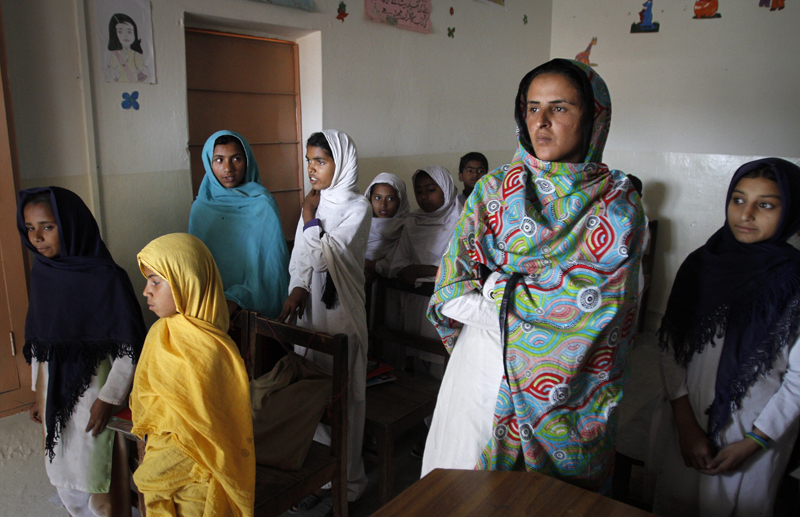(RNS) Some right-wing Islamist leaders in Pakistan are denouncing a newly passed law criminalizing violence against women in Punjab province, saying it contradicts the Quran and will increase divorce rates.
“This law is in conflict with the Holy Quran, the life of (Muhammad), constitution of Pakistan and values of our country,” Maulana Fazlur Rehman, chief of the Jamiat Ulema-e-Islam-Fazl party, told media Tuesday (March 1). “We are with all those who want to end violence against women, but by this law the country is going from one extreme position to another.”
The Protection of Women Against Violence Bill passed unanimously Feb. 24 in Pakistan’s largest province after about nine months of opposition.
The legislation criminalizes domestic, emotional, psychological, verbal and economic abuse, as well as stalking and cybercrime.
Activists hailed the law, which establishes a toll-free help line, protection centers, residential shelters, financial relief, penalties for offenders and a system for registering complaints, as a historic step.
“The bill is aimed at upholding the principles of kindness, justice and equality enunciated by Islam,” said Fauzia Viqar, chairwoman of the Punjab Commission on the Status of Women, in a statement.
Rehman, an influential cleric who has previously made statements in support of the Pakistani Taliban, said the women’s rights protection bill was a secular move in direct conflict with Shariah, going as far as to call it a Western conspiracy.
“The bill (demonstrates) the blind following of American and European cultures,” he said. “It goes against Shariah and the norms of our society. … Today we are again being made a colony of the Americans and the British.”
Rehman added that the legislation would break up homes, cripple men’s position at home and ultimately invoke God’s wrath on the country.
Mufti Muhammad Naeem, chancellor of the Jamia Binoria International madrassa in Sindh, called the bill a liberal “tragedy” that would suppress men’s rights.
“Rulers under their mental slavery of the West are forgetting their social values also,” Naeem, a prominent cleric, said, pointing to Western women’s ability to call the police with complaints of abuse at any time.
Leaders of the Jamaat-e-Islami party, a hard-line conservative group promoting political Islam, have made remarks along the same lines.
“The bill is tantamount to undermining our family system and would affect the relationship of respect between mothers, sisters and husbands,” party leader Sirajul Haq said.
A study by the Islamabad-based women’s rights group Aurat Foundation found that about 5,500 crimes against women occurred in Punjab province in 2010, accounting for around 65 percent of the country’s documented crimes against women. Experts say that violence against women, particularly in developing countries, is underreported.
(Aysha Khan reports for RNS)





